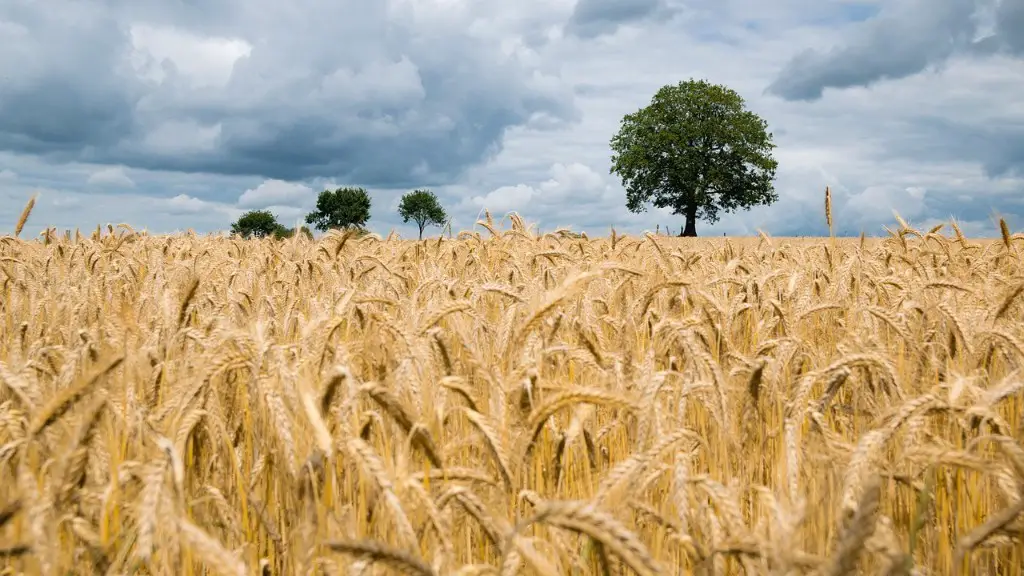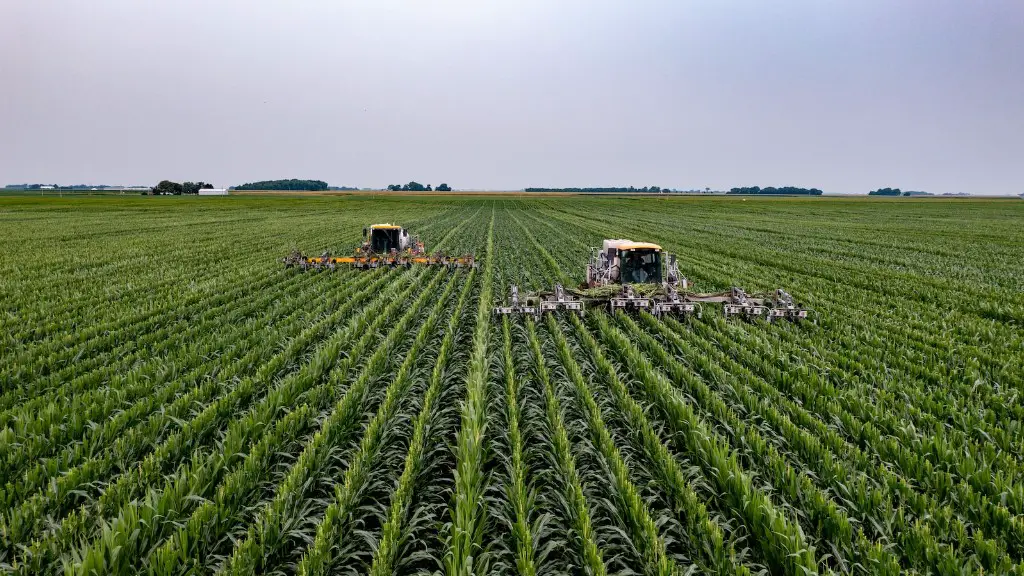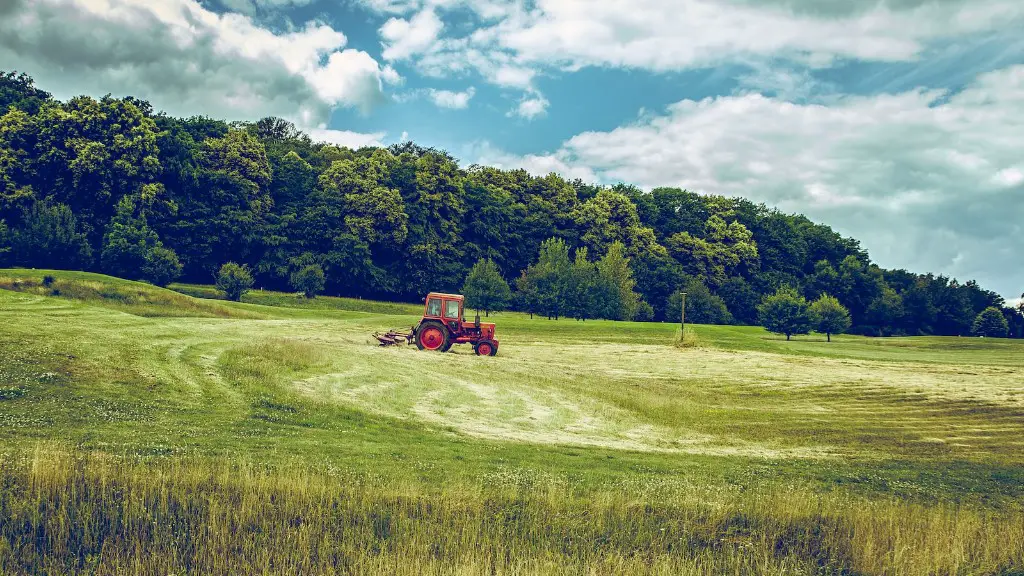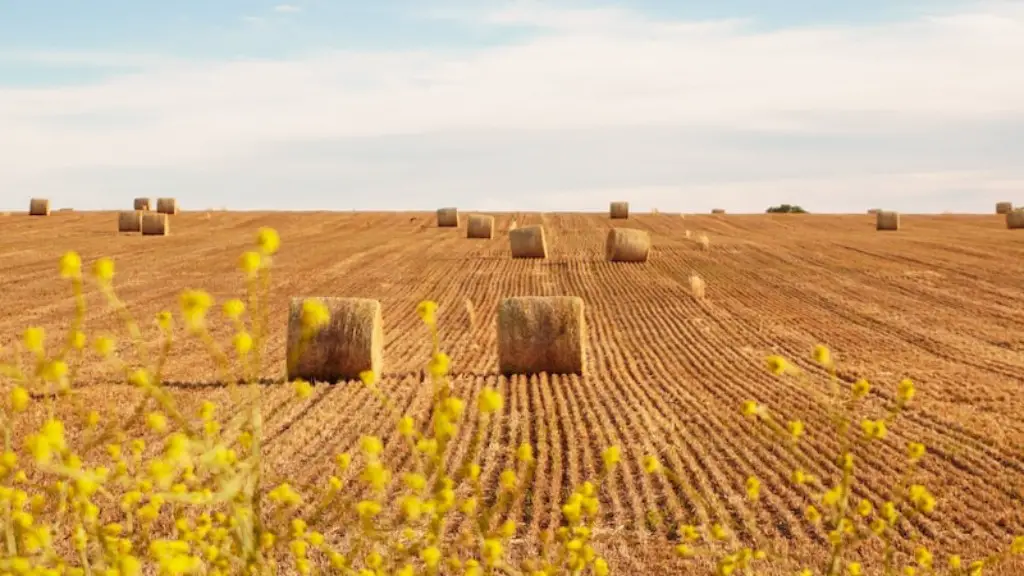Agriculture is one of the leading causes of deforestation in the Amazon rainforest. When forests are cleared to make way for crops and livestock, they are converted to agricultural land, resulting in a loss of biodiversity, soil degradation, and reduced levels of carbon sequestration. As deforestation continues to increase, the Amazon rainforest is being disproportionately affected, causing a devastating impact on its ecology, economy, and people.
The impact of agricultural expansion on the Amazon rainforest is far-reaching. One of the most pressing concerns is the loss of biodiversity. When forests are cleared, it results in the displacement of animal populations, leading to a decrease in species richness. Additionally, agricultural activities can be linked to increased pollution, erosion, and runoff of sediment, which harm local ecosystems and can lead to water quality issues.
Agriculture also has a direct effect on the local climate. By reducing the amount of vegetation covering the land, rapid changes can occur in both temperature and precipitation. This is further exacerbated by the burning of forest, which releases large amounts of carbon dioxide into the atmosphere, contributing to global climate change.
The deforestation of the Amazon rainforest is further motivated by government policies and subsidies. These policies can make it profitable for farmers to cut down and convert forests, leading to a cycle of highly inefficient land use. Additionally, government policies can influence property rights, leading to illegal clearance of land.
On top of this, agricultural expansion also has severe impacts on local communities. Not only do people lose their livelihoods and access to natural resources when forests are cleared, but environmental changes from deforestation can lead to a reduction in air quality and health issues. Furthermore, indigenous cultures and livelihoods are often lost when agricultural activities take the lead.
The Amazon rainforest is under siege, and it’s due in no small part to agricultural expansion. Unless steps are taken to protect this vital region, the consequences for both the environment and its people will be immense.
Economic Impacts of Agriculture on the Amazon Rainforest
The economic impacts of agricultural expansion in the Amazon rainforest are both direct and indirect. On the one hand, large-scale commercial agriculture is extremely lucrative, creating short-term economic gains, particularly for international agro-industrial companies. At the same time, deforestation causes a significant decline in biodiversity, with resource extraction and conversion to agricultural land reducing the availability of plant and animal resources. The disruption of such naturally-occurring resource cycles can impact the broader economy, with reduced crop yields and potential losses in tourism.
The expansion of large-scale corporate agriculture in the Amazon rainforest also has a devastating effect on local economies. Small-scale farmers and traditional communities who rely on the forests and their resources for their livelihoods, often find these resources destroyed or depleted when the forest is cleared for agricultural use. This can lead to displacement and displacement for traditional rural communities, in addition to the loss of livelihoods. Additionally, the impact of chemical fertilisers and pesticides used by corporate farms can also lead to environmental degradation, and in some cases, health problems for local farm workers.
Furthermore, the displacement of traditional rural communities through deforestation for large-scale agricultural operations can also lead to an influx of migrants into urban areas. This can create an overcrowding of resources, including housing, and result in the spread of poverty and crime. In the long-term, an effect of this kind of displacement can be a lack of access to education and healthcare services, particularly among communities in the Amazon rainforest.
Finally, the spread of monoculture plantations in the Amazon rainforest has had a significant impact on the environment. The production of cash crops such as soy and palm oil requires large areas of land, which leads to massive deforestation and soil erosion, as well as air pollution from the burning of the forest. This has had a negative effect on air quality, and in some cases, can lead to water-borne diseases caused by contaminated water sources.
Social Impacts of Agriculture on the Amazon Rainforest
The social impacts of agricultural expansion in the Amazon rainforest are wide-reaching. Small-scale farmers and traditional communities who have relied on the forest and its resources for generations are often forced to leave their homes when the forest is cleared for agricultural use. This leads to a loss of livelihoods and the displacement of traditional cultures, which can result in increased poverty, food insecurity, and a lack of access to education and healthcare services.
Furthermore, the displacement of traditional communities is often accompanied by the destruction of valuable cultural artefacts and sites, as well as damage to spiritual and ancestral places. This has had a significant effect on the collective identity, culture, and traditions of many of the people living in the Amazon rainforest. Additionally, the destruction of the Amazon rainforest has also led to a depletion of sacred spiritual places, which can lead to a spiritual breakdown for many Amazonian communities.
The destruction of the Amazon rainforest also has an effect on physical health. In many cases, the destruction of the forest has been accompanied by the release of dangerous pollutants into the air, water, and soil, which can lead to health problems such as respiratory diseases and cancer. Additionally, the destruction of traditional sources of food can lead to nutritional deficiencies, further increasing levels of poor health among vulnerable communities.
Moreover, the destruction of the Amazon rainforest has a profound effect on the mental health of its people. The displacement and destruction of the traditional cultures of the people living in the Amazon rainforest has in many cases led to an erosion of their shared identity, customs, and values. This can lead to a sense of alienation, and can lead to depression, trauma, and other mental health problems.
Finally, the destruction of the Amazon rainforest has also had a significant effect on the global economy. The destruction of the forest can lead to a dramatic decrease in biodiversity, which could have a long-term economic impact on global tourism, resource extraction operations, and other industries.
Political Responses to Agricultural Expansion in the Amazon Rainforest
In response to the destruction of the Amazon rainforest, a number of countries have adopted policy measures in an attempt to reduce the impacts of agricultural expansion. Brazil, for example, has enacted legislation restricting the expansion of agricultural activities outside of designated zones, while also promoting the protection of areas of strategic importance for biodiversity conservation. Moreover, the Brazilian government has supported the creation of Indigenous Territories, largely aimed at protecting the rights of traditional forest-dependent communities.
Similarly, Bolivia and Ecuador have also implemented policy changes in order to protect the Amazon rainforest. Bolivia has put in place specific rules for cattle ranching and deforestation, in addition to promoting conservation initiatives by local communities. Meanwhile, Ecuador has also taken steps to regulate the expansion of oil and agricultural activities in the Amazon rainforest, with specific rules in place for the conservation of natural resources.
At the multinational level, agreements such as the Amazon Cooperation Treaty have been put in place to promote research, training, and information sharing on the sustainable management of the Amazon rainforest. The treaty also calls for the recognition of the rights of Indigenous peoples and their traditional cultures, and it advocates for the practice of agro-ecology, which is an agricultural practice that is both environmentally and socially sustainable.
Despite these efforts, the destruction of the Amazon rainforest continues to worsen. Without more stringent enforcement of existing legal and policy frameworks, it is unlikely that the destruction of the Amazon rainforest caused by agricultural expansion can be reversed.
International and Corporate Responses to Deforestation in the Amazon Rainforest
In recent years, the international community has taken a more active stance in responding to the destruction of the Amazon rainforest caused by agricultural expansion. For instance, the Netherlands recently announced a plan to suspend financial assistance to Brazil, citing concerns about deforestation in the Amazon. Additionally, France and the United Kingdom have also since pledged to suspend payments for imports of Brazilian cattle not guaranteed to be produced sustainably.
At the same time, there has been an increased focus on corporate accountability for the destruction of the Amazon rainforest. A number of organisations, including Greenpeace and Rainforest Alliance, have initiated campaigns to pressure companies to source their products from certified sustainable sources and change the way they source ingredients from the Amazon. Additionally, some companies have taken steps to reduce the environmental impact of their operations, including reducing deforestation and engaging in more sustainable practices such as agroforestry.
While these initiatives are encouraging, more must be done in order to effectively protect the Amazon rainforest. Until the general public is made aware of the destruction taking place, and begins to actively demand improvement, the destruction of the Amazon will likely continue to worsen.
Conclusion
The destruction of the Amazon rainforest caused by agricultural expansion is a complex issue, and one that requires an integrated approach to address. From international policies and corporate practices to local initiatives and public awareness, all stakeholders must work together to protect and restore the Amazon rainforest and its valuable resources. Without a strengthened commitment and comprehensive action, the destruction of the Amazon rainforest and its people will continue.





